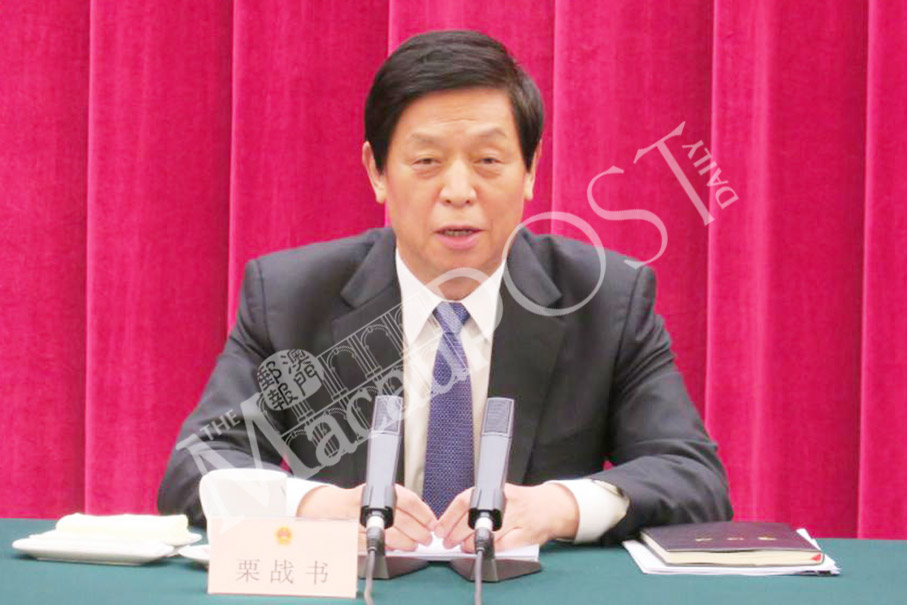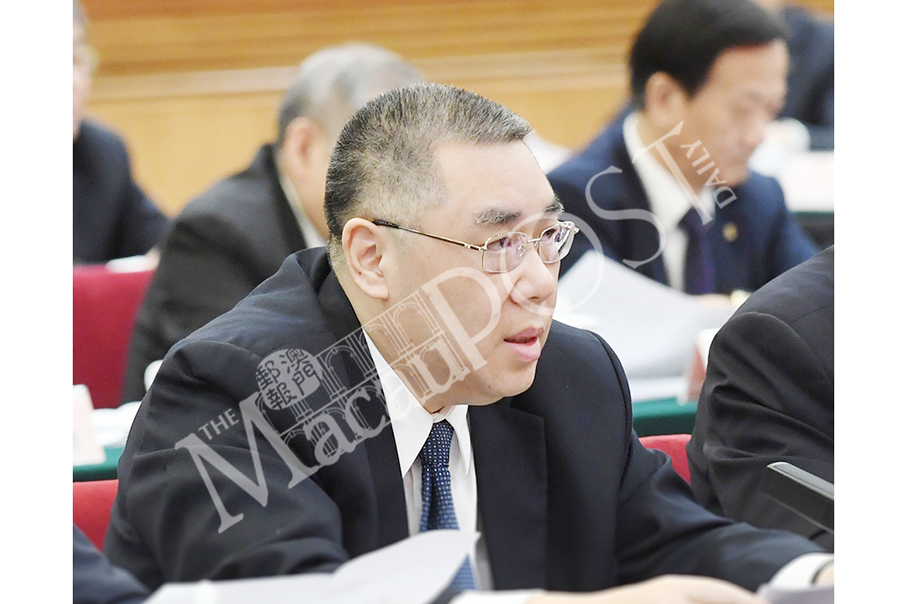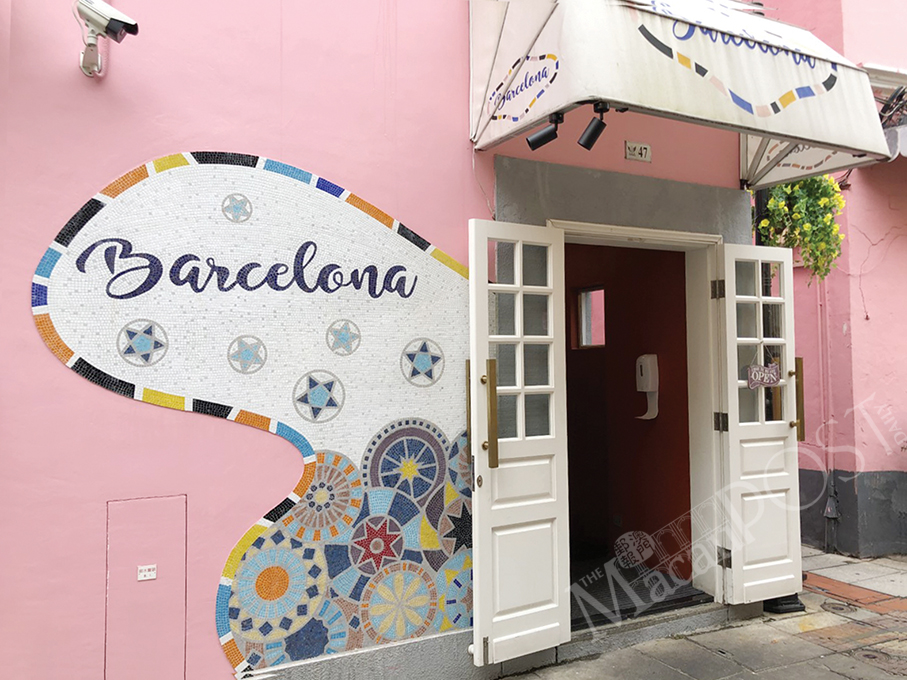Li Zhanshu, a member of the Standing Committee of the Political Bureau of the Communist Party of China (CPC) Central Committee and chairman of the Standing Committee of the National People’s Congress (NPC), pointed out yesterday that as the Macau Basic Law was formulated in accordance with the nation’s Constitution it matches the country’s “fundamental interests” and Macau’s “actual situation”.
Li described the Macau Basic Law as a “good law” that has passed the “test of practice”, according to a Xinhua report.
Li made the remarks when giving his concluding speech at a symposium held by the General Office of the NPC Standing Committee to mark the 20th anniversary of the implementation of the Macau Special Administration Region (MSAR) Basic Law, at the Great Hall of the People in Beijing yesterday.
Li also pointed out that the Constitution and the Macau Basic Law jointly “constitute” the “constitutional foundations” of the MSAR.
Li pointed out that the successful practice of the “One Country, Two Systems” principle with Macau characteristics should be promoted in accordance with the Constitution and the Macau Basic Law.
Li said that the successful practice of the Macau Basic Law in the past 20 years “fully proves” that only when national identity is widely formed in society as a whole can the Basic Law “fully and accurately” be implemented, and only by protecting the nation’s interests of sovereignty, security and development can Macau achieve long-term prosperity and stability, and only by integrating the MSAR into the nation’s system of governance, as well as by integrating itself into the nation’s development plan, can Macau march into a “bright new future”.
‘4 hopes’
According to Xinhua, in order to “fully, accurately and effectively” implement the Macau Basic Law, Li pointed out his four hopes:
To strictly follow the Constitution and the Macau Basic Law for Macau’s governance;
To exercise the powers according to the law for the central government’s overall jurisdiction of the MSAR and the MSAR’s high degree of autonomy;
To continually build the mechanism of protecting national security, and to “resolutely” prevent and contain external forces from interfering in Macau’s affairs;
To continually strengthen the promotion of the Constitution and the Macau Basic Law, and to raise public awareness of the two laws.
Chui stresses protection of nation’s sovereign interests
Chief Executive Fernando Chui Sai On said that in order to “fully and accurately” implement the Basic Law, one must uphold the principle that rights and obligations go hand in hand, so as to protect the nation’s sovereign interests, apart from safeguarding Macau’s stability and prosperity, according to a statement by the Chief Executive Office (GCE).
Chui pointed out that over the past 20 years since Macau’s return to the motherland, thanks to the great support of the central government and the joint efforts of local citizens, Macau has achieved all-around development.
These achievements are due to the protection by the Macau Basic Law, Chui added.
Chui, whose second and constitutionally final five-year term ends at midnight on December 19, vowed that while enjoying the protection by the Macau Basic Law, the MSAR is also “actively fulfilling its constitutional obligations”.
Chui pointed out that in the past 20 years, the local government has been “fully and accurately” understanding the “One Country, Two Systems” principle, and “organically” combing the central government’s overall jurisdiction and the MSAR’s high degree of autonomy, and “resolutely” protecting the nation’s interests of sovereignty, security and development.
Chui noted that the “One Country, Two Systems” principle is an “important manifestation” of the nation’s governance system and its modernisation of governance capability.
Winning people’s hearts
Chui also pointed out that the “One Country, Two Systems” principle is an important element of the Chinese nation’s rejuvenation, adding that the Basic Law’s successful practice in the past 20 years also proves President Xi Jinping’s “scientific judgement” that the “One Country, Two Systems” principle is “workable, achievable, and has won people’s hearts”.
The director of the Office of the Foreign Affairs Commission of the Communist Party of China (CPC) Central Committee, Yang Jiechi, Central Political and Legal Affairs Commission of the CPC Secretary Guo Shengkun, United Front Work Department of the CPC Central Committee Director You Quan, NPC Standing Committee Vice-Chairman Ding Zhongli, State Councillor and Foreign Minister Wang Yi, State Councillor Zhao Kezhi, and National Committee of the Chinese People’s Political Consultative Conference (CPPCC) Vice-Chairman Edmund Ho Hau Wah attended the half-day symposium, according to the GCE statement.

Li Zhanshu, a member of the Standing Committee of the Political Bureau of the Communist Party of China (CPC) Central Committee and chairman of the Standing Committee of the National People’s Congress (NPC) delivers his concluding remarks at yesterday’s symposium. Photo: Courtesy TDM

Chief Executive Fernando Chui Sai On addresses yesterday’s symposium held by the General Office of the NPC Standing Committee to mark the 20th anniversary of the implementation of the Macau Special Administration Region (MSAR) Basic Law, at the Great Hall of the People in Beijing yesterday. Photo: GCS







